Ways to Save Your Skin from Dirt, Pollution, and Sun Damage
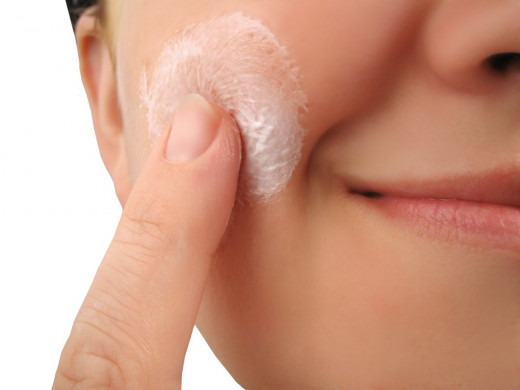
How to protect the skin you're in?
With about 18 square feet of unprotected skin to care for, it’s no wonder why our medicine cabinet is full of skin-care products. Frequent use of those skin products is not necessary. It may even slowly damage your skin which brings more problem than good.
The exposed layer of the skin coated with gels, creams, toners, scrubs and cleansing lotions is called the epidermis - it's the topmost of the three layers of our skin. The epidermis is the most affected by environmental harm usually by Ultraviolet radiation which can leave the skin darkened, and old-looking. As our skin undergoes the aging process, it may appear rough, wrinkled and dry. So we search tons of skin-care products on store shelves - many cost around $100 a jar- made to clean, plump, de-wrinkle, lighten and just ordinarily improve various skin types.
The truth is, getting a healthy skin is not complicated. Your skin only needs one or two natural, less expensive do-it-yourself treatments to stay healthy and fresh-looking. A lot of these solutions are the ones the rest of your body needs to work at its best level. Adding different, expert-advised products into a skin-care plan isn't indeed a bad idea, and can in most cases be quite helpful. However, for many of us, a right skin treatment is the one with a reasonably hassle-free process.
The daily necessary thing to do is: keep your skin clean.
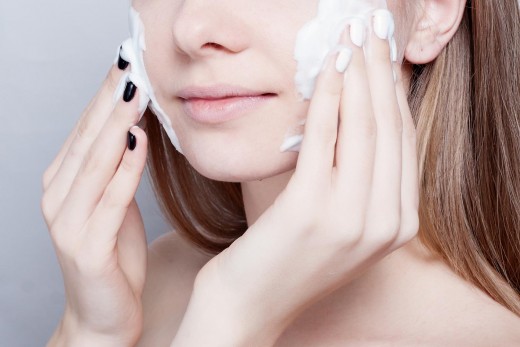
Use skin cleansing product that's right for you.
Cleansing is probably the most fundamental element of any skin-care process. It not only takes away too much dirt, pollutants and pore-clogging oil from the epidermis so it can stay blemish-free, it also prepares the skin for any second product you'll be using, so skin-care ingredients ( such as vitamins or sun cream ) can be absorbed and bring useful results.
However, not all cleansers give you the same effect. First, a facial cleanser must not be soap-based; the soap products you use on other parts of your body are usually quite harsh for the face. And, just like most skin-care products, you have to use one that best for your skin type. For dehydrated skin, it is best to use a creamy facial cleanser. Dry or sensitive skin have to choose an alcohol-free facial cleanser, regardless creamy or not. Oily skin may benefit from an acidic facial cleaner, such as an alpha-hydroxy product, which can do an excellent job of splitting up sebum - the skin's oily secretion that can cause clogged pores.
Regardless which facial cleanser is right for you, try to massage it into your face for about 20/sec to allow the ingredients to do their job.
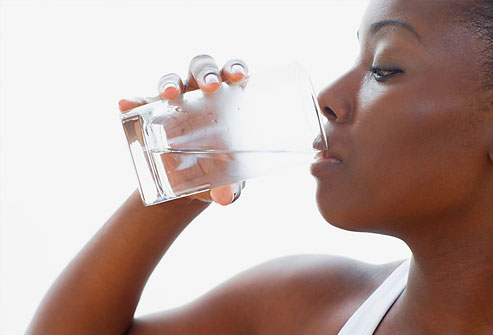
Drink plenty of water for healthy skin.
The human body contains a lot of water – the amount of water in our body ranges from 50 to 75% water. Water cleanse toxins out of the body, helps our cells to absorb essential nutrients, and maintain our digestive process running correctly.
Somehow water is always consumed by our body. The most basic bodily functions, like respiration and perspiration, take away water from our cells. So for our cells to function effectively, we have to drink plenty of water to restore what we lose.
The skin like other parts of the body needs to be moisturized or hydrated. Water helps eliminate pollutants from the surface that can cause blemishes, and need to be hydrated to maintain the skin looking fleshy and clean.
To keep the skin moisturized, make sure you drink a minimum of half a gallon (2 liters) of water daily.
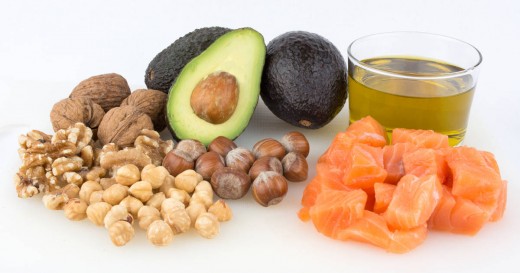
Omega 3 boost your skin protection.
Essential fatty acids (EFAs), are a significant addition to every balanced diet. They aid to develop lipid-based cell membranes that carry in water and essential nutrients. For the skin, those lipids form an oil shield that protects it from ultraviolet harm and polluting agents.
If EFAs is not present, skin-cell membranes and that entire protective shield can't do their job. The skin ends up extremely vulnerable, dry and susceptible to produce a more damaging type of sebum, making it dull, swollen and blemished.
The EFAs you need to obtain to make your skin looking great is omega-3 and omega-6 fatty acids. Omega-6 is present in many foods, such as poultry (eggs, chicken meat), grains (flaxseed, pumpkin seeds) and cooking oils, so you're most likely getting a right amount of that. Omega-3s are somewhat difficult to obtain; you'll get those in cold-water fish, like salmon, trout, oysters, and sardines, along with kidney beans, walnuts, and spinach. Some skin specialists usually recommend another EFA, gamma-linolenic acid (GLA), for its anti-inflammatory benefits. GLA can be found mainly in plant oils.
Often its beneficial to take an omega-3 or GLA supplements to enhance your skin’s health. You'll get those in nearly all grocery stores, and of course all natural-foods shop.
EFAs can improve your skin tone from the inside.

For sun safety use sunscreen.
When using sunscreen, you're not only safeguarding yourself from serious diseases such as skin cancer you're also avoiding the signs of skin aging that you get from UV exposure. Skin that is over-exposed to the sun becomes darkened, wrinkled and less flexible.
Believe it or not, what most people consider as an aged skin is, more precisely, sun-damaged skin.
To offer protection to your skin from the harmful effects of the sun, you may choose either a chemical-based sunblock, such as Avobenzone or Oxybenzone, or a physical-based, like zinc oxide or titanium dioxide. Whatever you prefer, buy one with a sun-protection factor (SPF) higher than 15, and apply it roughly 20 minutes before you do activities under the sun.
Doing this method, the proactive components have a chance to start working before the Ultraviolet exposure begins.
If you go swimming or doing activities that make you often sweat, make sure to reapply sunscreen afterward.
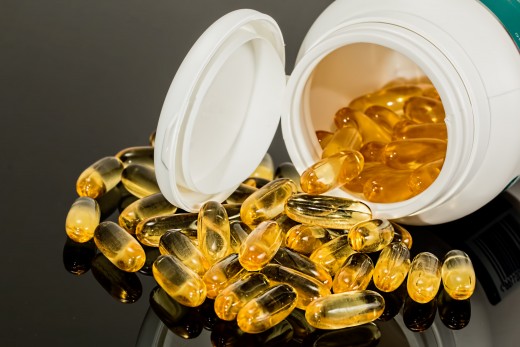
Vitamins C and E are antioxidants good for your skin.
Antioxidants are extensively considered to be good for both heart health and cancer prevention. They're present in all kinds of foods, like fruits, vegetables, seafood, and oils. Antioxidants' free-radical- with fighting-actions that eradicate molecules that can harm healthy cells and as it ends up, they're an excellent addition to have healthy skin cells as almost every other cell in the body needs them.
Although many different antioxidants are good for the skin, two types deserve the spotlight:
Vitamin C – Helps build collagen in a fleshy, firm skin. Eat whole grains, apples, oranges and other citrus fruits. Have 75 milligrams each day.
Vitamin E - Protects cell membranes and assists skin-based nutrients that resist UV devastation. Consume wheat germ oil, almonds, broccoli, mustard, spinach, kale and peanut butter. Aim for 15 milligrams each day.
Skin care tips video.
© 2013 Ferdinand Receno






